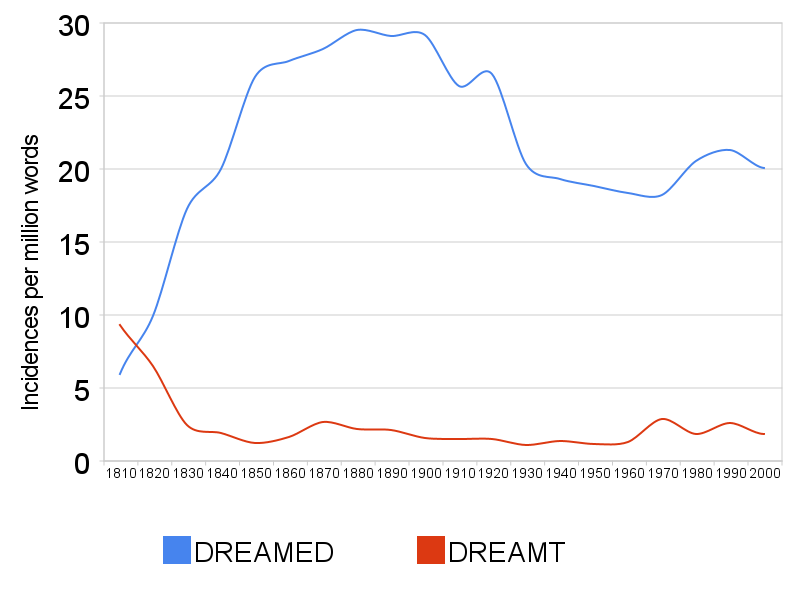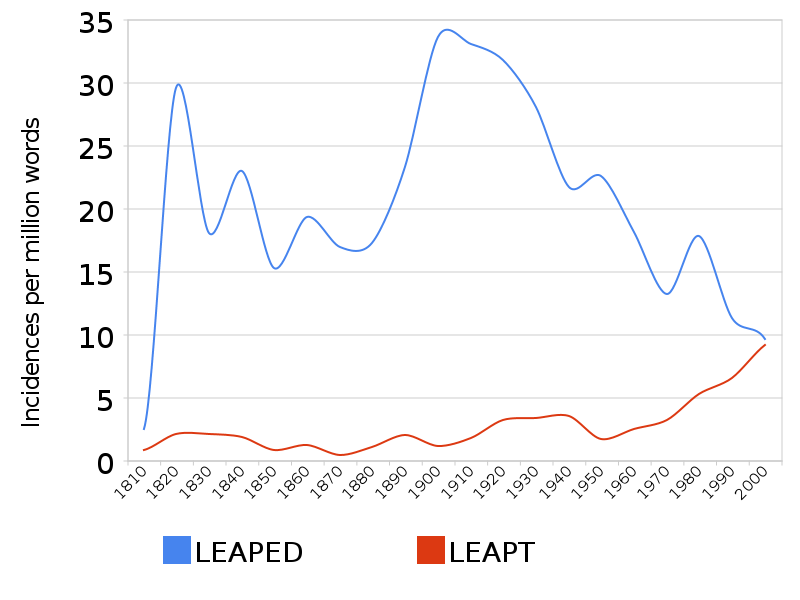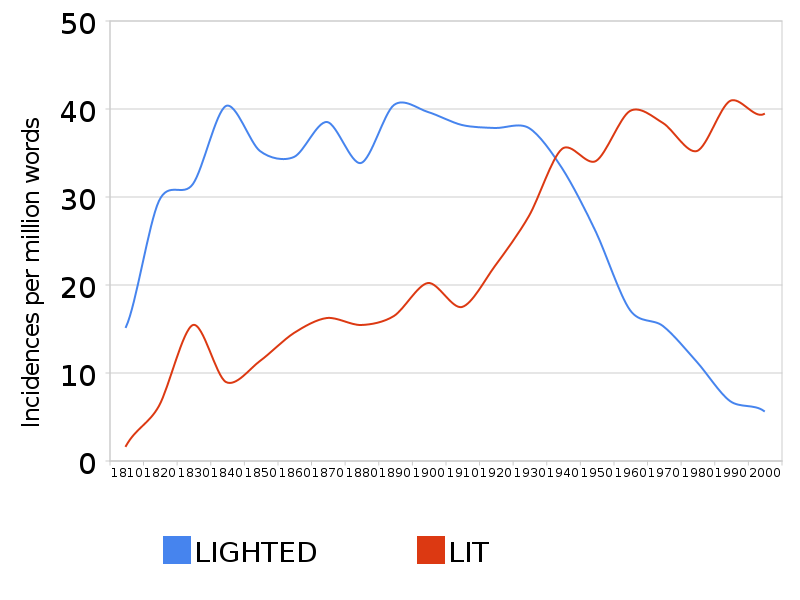nohat's answer speaks well to some of the trends with such forms, but not to the question of why such cases happen as per the question's title.
Indeed, if we accept swimmed, then we have a verb with three past tense forms; swimmed, swam and swum. However swimmed is not normally considered standard. Abided, abode and abidden would be another example, but abidden is obsolete.
But while it's not one that would meet with full approval from all, that three-fold case talks to one thing that needs to be gotten out of the way. There are two past-tense forms to every word, but in most cases they are the same. There are also two patterns for forming those past tenses, and that is what is at play here.
One of the past forms is called the simple past, past simple or preterite. For example, of the verb eat, the preterite is ate.
The other past form is called the past participle, passive participle, or perfect participle. The perfect participle of eat is eaten.
Each has several uses, but for now the use in the simple past and present perfect suffices as an example:
I ate the pie.
I have eaten the pie.
Older Germanic languages had two main classes of verbs. Jakob Grimm named these weak and strong verbs. Each of these in turn were split between different classes.
Weak verbs had different forms (not just for the past tense forms, but person and number too) produced by changing the ending, strong verbs by changing a vowel sound, and sometimes adding an -n sound.
By modern English, only two classes remained of weak verbs, and only one of them is productive (we apply it to new verbs when they come into the language).
This form creates both past-tense forms by adding -ed (or -d if it ends in an e).
The other contains some other verbs that change tense by changing their ending, in different ways (buy/bought, catch/caught, bring/brought, tell/told, deal/dealt, dream/dreamt).
Any other weak verb got moved into one of these.
Strong verbs have a larger number of classes. These are sometimes named the drive, choose, bind, bear, give, shake & fall classes after examples of each. While each has a different pattern, some examples have changed in such a way as to not really fit that pattern any more. The words that have different preterite and present participle forms are strong verbs. Eat, which was our example above, is of the give class.
Generally when a new word is added to English (by coinage, forming a verb from another word, or borrowing from another language), they are weak, and take an -ed to become past tense. A small number of words have come into English as strong verbs by analogy with a rhyming word (strive after drive, fling in the drive group, matching ring and cling etc.)
This in itself is a reason to account for most English verbs being weak.
Another factor brings us to one part of answer to the question: Lots of strong verbs became weak. Yell, shove and float for example were strong verbs in Old English, but became weak.
This has been happening from the Old English period on, and continues to happen.
This doesn't happen overnight, so we've a period where we have verbs with a set of two (possibly identical, often separate) past tenses formed the strong way, and also past tenses formed the weak way. Resulting in a total of two or three words, giving us a choice for between two different preterites and two different participles.
This is a source of some of our two-form words. Abide for example has both abided and abode (and the archaic abidden).
While less common, it can also go the other way, with weak verbs becoming strong in much the same way that some words are taken into English as strong.
This gives us some other examples; light was weak, with lighted existing earlier, but we now also have lit.
While one form often wins out entirely over the other, they can both last a long time. Lighted is 14th C and has been around for all of Modern English, while lit is 16th C and has been around for most of it, but has only become the more popular in the middle of the last century.
Finally, the weak verbs can change class, so the examples that don't end in -ed can develop a form that do; dreamed emerging to compete with dreamt.
We have some cases where there is a weak form for the simple past and a strong form for the present participle. Showed was once the only past of show, but now shown is more common for the participle. Hence we can see that the difference between the participle and the preterite can be a part of this process.
We have some that did one, and then the other; Dive was strong, then became weak, then had a re-invented weak form dove that is generally considered incorrect as a participle.
We have some odder cases. While these different forms are strictly exact synonyms, there having different sounds can give one and advantage over the other (e.g. I suggest here that apart from lighted being more popular at the time, Hemmingway had a reason to favour the word with an /aɪt/ sound in that story, because he frequently rhymes that /aɪt/ sound throughout), and people develop idiosyncratic preferences for one over the other in certain senses. Sometimes these are picked up by others, and become a full difference in sense.
Strike would once have been struck and stricken for simple past and present participle, but now stuck and stricken are used with different meanings for the participle. (This is an exception to the general pattern above, as both come from strong forms).
Hang is also a strange case, with its "meat is hung, men are hanged"* rule.
Since there are continual mutations both in the creation of new forms of such words in both directions, and in the relative popularity of each, regional differences form. British and Irish English is generally more likely to use the strong form, American the weak, but there are exceptions.
It's also generally the case that the weak becomes more popular than the strong (to the point of often making the strong extinct), but again there are exceptions as nohat's graph of lighted vs the relatively recent lit shows.
All your examples are examples of this in one direction or another. dream was originally weak (and originally meant "sing" or "rejoice") but of the class that had its past dreamt, but some people treated it as the other class and produced dreamed.
Likewise light only had lighted. It acquired lit from people treating it as strong. But those new past tenses never entirely stamped out the previous, so we still have dreamt and lighted too.
Leap was a strong verb, so its original forms was lept, but some people applied the more common weak form to produce leaped and again neither has completely overcome the other.
Sweep is still normally taken to only have swept as it's past tense, with sweeped generally considered incorrect, and not included in most dictionaries. That you have seen some people use it would point to the reason it's common for strong verbs to become weak (or at least to have the weak form as a variant); a few people adding -ed to such a verb is an error, a sizeable percentage of the English-speaking population doing so, is a change in the language.
*Making the response "Yeah, I'm well-hanged" probably the only risqué joke in existence about Germanic verb forms.



